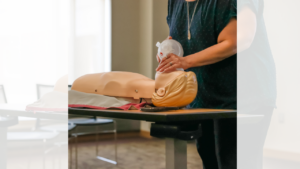Diet and exercise, as well as getting enough sleep, are the most important elements in maintaining a healthy lifestyle. Building good, healthy habits takes time so be patient as you incorporate these tips into your life.
Eat breakfast every day
Breakfast is the most important meal of the day. You need it to replenish the supply of glucose your body lost overnight. A healthy morning meal provides the nutrients needed for your brain and body to function well. Wake up early enough so you’ll have time to prepare your meal.
Increase water intake
Drinking plenty of water helps remove toxins from your body and replenishes fluids lost through sweat and urine. Water also optimizes the movement of nutrients and oxygen to your cells. Drink plenty of water to stay hydrated and keep your body and joints functioning well.
Quit snacking in between meals
Snacking in between meals can cause unwanted weight gain, especially if you consume those that are considered junk foods, e.g., chips, cookies, and sodas. If you need to boost energy, opt for a healthy snack such as a protein bar.
Keep yourself active
Keeping your body moving is considered exercise. Physical movement increases blood circulation, burns calories, and helps maintain heart health. Whether you’re at home or in the office, get up and move around every 30 minutes.
Get outdoors for short walks
Walking is a simple and quick way to relieve tension and stress. Finding time to enjoy a 30-minute walk daily is a great way to boost your energy. Try to set a regular time for your walk, perhaps following your lunch break or after work if a morning walk routine isn’t practical. What matters is getting some form of exercise and mental relaxation on those walks.
Put away electronics well ahead of bedtime
You have to set boundaries with your electronic devices if you want to get a good night’s sleep. Blue light from these devices interferes with the body’s release of melatonin, a hormone that makes you feel drowsy. End screen time with your TV, phone, tablet, or laptop about 2-3 hours before bedtime.
Set a sleep and wake schedule
Following a bedtime ritual helps regulate your natural body clock. Setting a time to go to bed each night, and a time to wake up the next day, will help your mind and body get into a rhythm. Try to get at least 6-9 hours of uninterrupted sleep. You’ll wake feeling refreshed, energized, focused, and ready to take on the day.
Organize tasks
Decluttering your physical and digital workspace regularly and using task-management Apps and tools are just a few ways to stay organized. There are even digital to-do lists.
Tackle work right away
According to studies, people are more productive between 8 am and 2 pm. Get your work done right away. Capitalize on your brain power, energy, and focus during the first four hours when you’re likely to be most productive. Starting work immediately helps counteract procrastination and low energy as the day progresses.
Spend quality time with family
Making time for family is important in creating a work-life balance. Have a meal, watch a show, play board games, or go for a walk together. Do at least one of these things daily to be emotionally present and make your family feel loved and cared for.
Check your weight regularly
Get yourself a bathroom scale. Check your weight on the last day of each month. Create a healthy diet plan to increase or decrease your weight based on the result. Routinely checking your weight can help prevent obesity, malnutrition, heart disease, diabetes, high blood pressure, and stroke.
Get a health checkup regularly
Stop putting off your annual wellness checks or regular clinic visits, regardless of whether you feel fine. Your primary care provider can uncover and treat health problems that don’t cause any symptoms such as hypertension, cancer, and hepatitis. Call today to schedule an appointment. If you do not have a primary care provider, you can request an appointment online with the CCMH Medical Clinic or call 712-265-2700.


